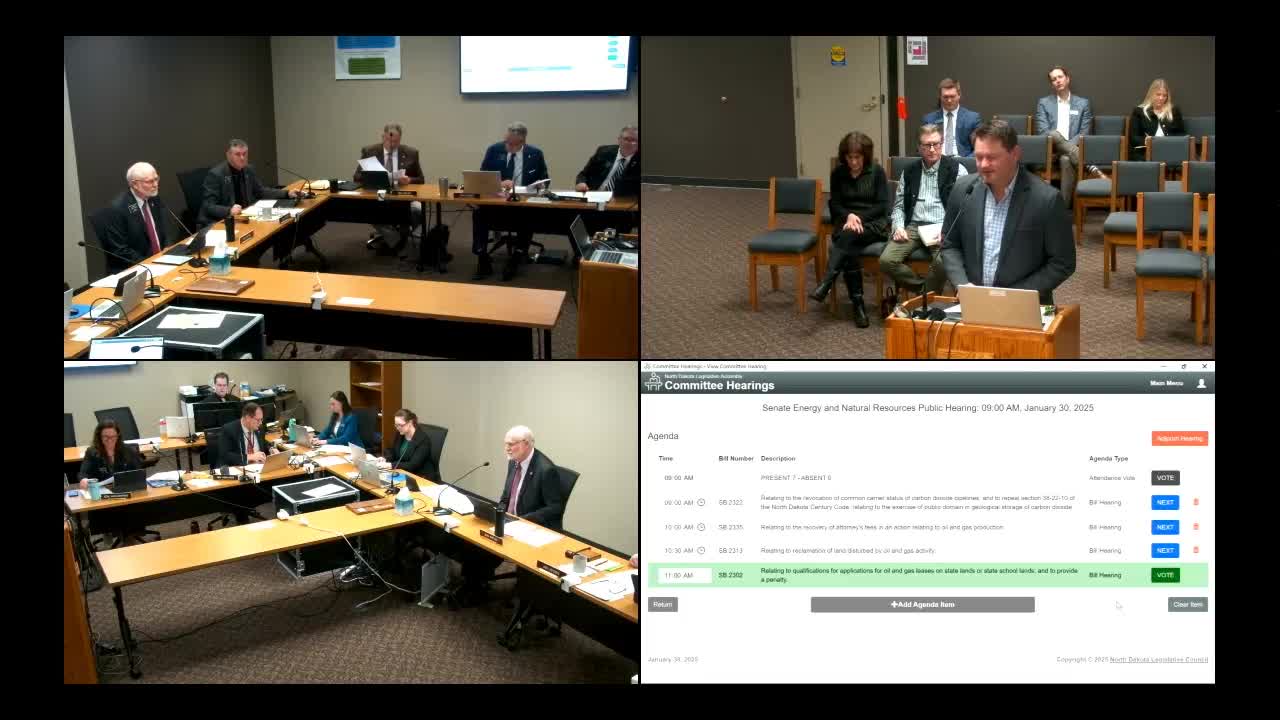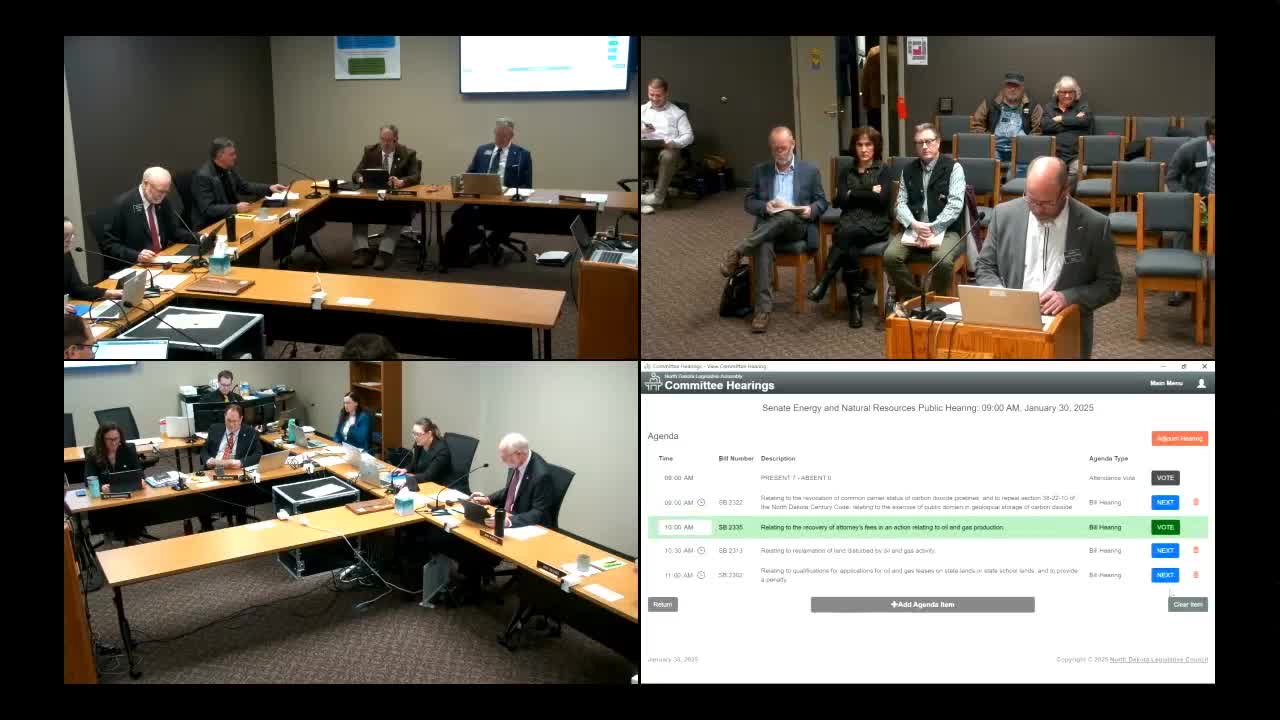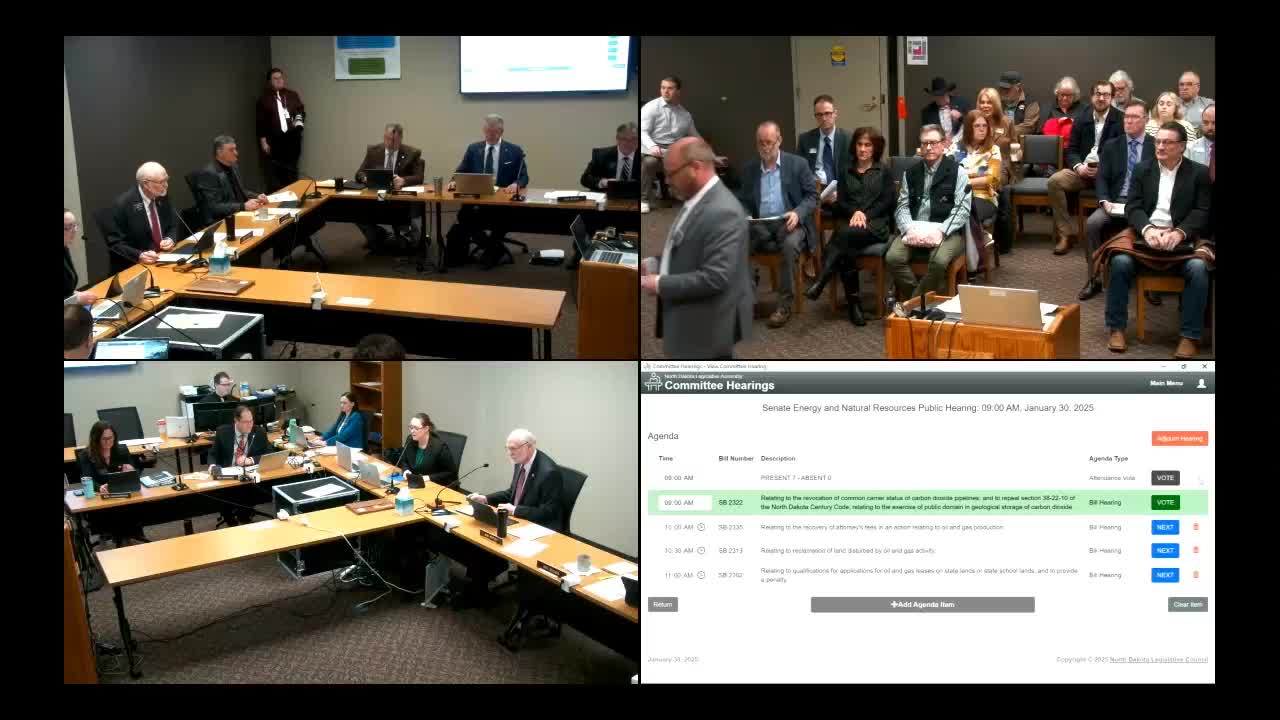Article not found
This article is no longer available. But don't worry—we've gathered other articles that discuss the same topic.

Bill would let land board cancel trust leases that block intended mineral development; department and industry support amendments

Hearing on bill to require pre-construction soil reservation for oil and gas sites draws debate over costs and enforcement

Committee hears bill to clarify recovery of expert-witness fees in oil and gas suits

